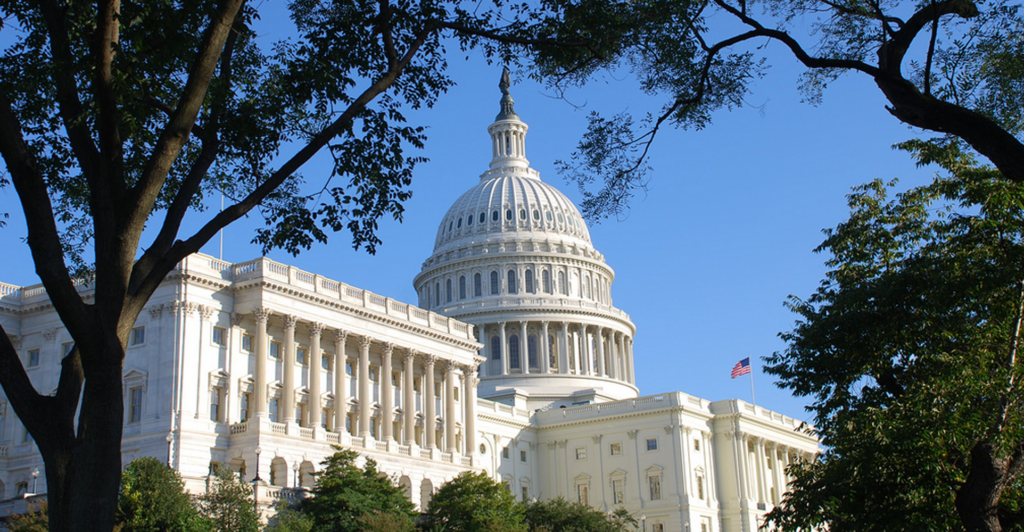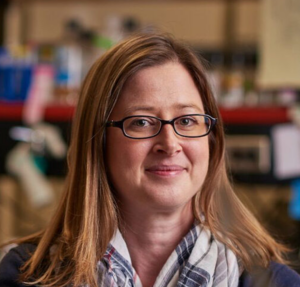It’s no secret that the unique situation we are experiencing as the result of the SARS-CoV-2 (COVID-19) outbreak is deeply affecting the lives of millions around the world, both directly and indirectly. Scientists have had to adapt, where possible, to work remotely, only performing what is deemed “critical” by a given administration. This begs the question: how have the sciences been affected by the COVID lockdown in the short and long term?
Trainees at all levels have been negatively affected. Future trainees applying to graduate school may encounter smaller class acceptance sizes due to changes in funding and endowment and an overall US recession, while many schools are bracing for an application surge across all disciplines. For trainees already in grad school, fellowships are offering periods of “forgiveness” due to the change in productivity.
However, certain social inequities are highlighted by this challenging time. Postdocs ready for the academic job market have had the unfortunate challenge of many institutes cancelling searches and introducing hiring freezes until 2021. Some job searches have continued and positions have been filled, because the money has been allocated, per hiring guidelines. Still, graduate students and postdocs have also lost critical training and tool development in their research. Principal investigators are also affected: the expectation to work from home has certainly been challenging for those on the tenure clock. Furthermore, the disruptions from the pandemic will disproportionately affect the careers of female academics for years to come. In addition to training being disrupted, critical equipment shortages have slowed research. Science is resilient—we have adapted to the pandemic-related work changes. However, these changes have had and will have long lasting effects.
The COVID-19 pandemic has changed how we work and train in the sciences, but we must not let it interrupt our progress or the support network that we have. The basic sciences need continued support, now more than ever. While the COVID-19 vaccine has been touted as a one-year victory, it is actually the culmination of over 10 years of basic science research, funded by the NIH. In order to continue science funding, we must advocate for ourselves as scientists. To do this, members of GSA’s Early Career Leadership Program Policy and Advocacy subcommittee partnered with the Coalition for Life Sciences (CLS) to put on a Virtual Hill Day.
“What is a Hill Day?” is something we all wondered a few years ago when hearing the term. At a Hill Day, supporters of a given cause gather with an organization and advocate for a cause, either in-person or virtually, with legislators. This can happen either in their local or Washington, DC offices (on Capitol Hill). The goal of these meetings is to meet with lawmakers in order to get their support for a specific issue.
We partnered with the CLS in order to advocate for increased funding to the NIH. Our subcommittee advisor, Lynn Marquis, a liaison between the GSA, the CLS, and Capitol Hill, helped us set up these meetings. In our sessions with legislators, we advocated for providing $46.111 billion in NIH funding for the 2022 fiscal year, which is a $3.177 billion increase over the 2021 funding level. This level of funding would allow for the NIH’s base budget to keep pace with the biomedical research and development price index (BRDPI), while allowing for a meaningful growth of 5%. Additionally, we asked for at least $10 billion in emergency relief for NIH, an amount that is provided in the Research Investment to Spark the Economy Act or the RISE Act.
Below, we share our experiences with our respective representatives.
Lucero Rogel:
For our Capitol Hill Day, I met with a health policy adviser for Senator Padilla (D-CA) and a legislative correspondent for Senator Feinstein (D-CA). For this meeting, my fellow peer, Nathaniel and our subcommittee mentor, Lynn Marquis also attended. As a first-time participant, I was both anxious and excited. I didn’t know what to expect or if I had prepared enough. At the same time, I was eager to advocate for science funding and make a strong case for why continued support of the NIH is important.
As soon as I joined the first meeting via zoom, my nervousness slipped away, as the staff member was very welcoming and approachable. As we discussed our research and experiences as early career scientists (especially during these COVID times), I saw that the staff member was attentive and interested in understanding our perspectives. He was also knowledgeable about the issues we discussed, which was refreshing. I left the first meeting feeling confident and ready to tackle the next one.
Our second meeting was held over a conference call, and although the staff member was responsive, we struggled to assess their engagement level. The meeting felt somewhat rushed, but, nevertheless, we were able to advocate for increased NIH funding and for use of RISE Act emergency relief funds to protect vital, ongoing research projects affected by the lab shutdowns. Overall, this experience was rewarding and has given me confidence to speak about issues important to my communities and to build relationships with the offices of my representatives.
Nathaniel Noblett:
I was nervous going into my Hill Day experience, as I do not work at an American institution and I have not had the chance to advocate for science funding to legislators prior to this. For the Hill Day, I partnered with Lucero for two meetings with congressional representatives from California. Given how busy senators usually are, we met with legislative aides, who were knowledgeable about health care legislation. Each meeting took approximately 20 to 30 minutes, during which I talked about my work and some of the problems that the ongoing pandemic has caused for early career researchers, and advocated for NIH funding.
The conversations went well, with a few questions on either side. Most of the legislators, while understanding, were unaware of some issues, such as how several months of disruptions can lead to delays in careers for early career researchers. I was also able to bring up some of my colleagues’ issues, such as the impact of travel restrictions on conference attendance and collaborations. Sharing these issues helped me to support my colleagues in a tangible way. After the meetings I sent out two follow-up emails restating our position on NIH funding and was pleasantly surprised to get a short reply thanking me from one of the offices.
Overall, I feel that that the experience was a great opportunity to share how important continued NIH funding as well as COVID relief is to the work of graduate students. I would encourage anyone who is interested to sign up for a future Hill Day. Researchers at different stages of their careers have faced some unique challenges in response to the COVID-19 pandemic, making it important that diverse voices from the research community get to speak out. If I could have changed anything in a future Hill Day that I may participate in, I would hope that the meetings could be conducted in person or on Zoom with video function. The second congressional meeting took place over a conference call, which made communicating our experiences difficult.
Marah Wahbeh:
Participating in my first ever Hill Day was a fun and enriching experience. As a scientist and graduate student who is interested in science policy, I have become increasingly aware of the impact of politics on science during the last few years. Through participating in Hill Day, I got the opportunity to be an active participant in advocating for and shaping policies that have implications for science funding and early career scientists.
My Hill Day consisted of three meetings with three different congressional offices in Maryland. During the meetings, I shared how the COVID-19 pandemic has impacted the scientific community, emphasizing its impact on early career scientists. Impacts include the extended shutdowns of labs, the slow return to work, as well as disruptions to the timelines of graduation and post-graduation plans. In sharing these experiences, I highlighted the need for an annual increase in research funding to support scientific research as well as additional COVID relief funding to alleviate the impact of the pandemic on the science community, especially on those who are most vulnerable.
The congressional staff I met with were very understanding and supportive. They acknowledged that the pandemic has made a clear impact on scientists at all career stages and how that can be detrimental to the growth of scientific research.
Through this experience I learned that, as students, we have the power to make an impact beyond what we do in the lab. Advocating for our needs to those who make policies is important—it is not as intimidating or difficult as I had anticipated it would be. I am excited to continue making the voices of early career scientists heard, advocating for scientific research, and for future Hill Days!
Balint Kacsoh:
I was quite apprehensive about participating in a Hill Day at first–I have no experience in speaking with politicians and had no idea of what to expect. Would I meet with the actual lawmaker? A random aide? Would they care about what I said? Why would they care? Then my cynicism came into play. Would they only pretend to care to get a vote? Would there be any follow-up? Would they engage? What is the point of this? Luckily, for the most part, this experience felt productive and illuminating.
Let me begin by saying I met with aides to the lawmakers. Senators and representatives are indeed often too busy to meet with constituents. However, several of the aides I spoke with were very helpful. In speaking with representatives from both NJ (where I live), and PA (where I work), I was able to actively advocate for basic science research by informing the aides of the effect of the lockdown on research. For example, many lawmakers assumed we lost only a few months’ time, when in reality, many of us have lost years from this delay–animals had to be sacked, reagents not made, aging experiments stopped, and so forth, causing long term delays that extend to a post vaccination era. Furthermore, many aides/lawmakers were unaware of the unavailability of standard, day-to-day reagents such as pipette tips and gloves, causing further work delays.
Some of our conversations with aides lasted our whole allotted 30 minutes, while others concluded in less than 15. These patterns generally synchronized with the interest and engagement of the aide–some were there to listen and help, others were there to get information and get out. This came across in my follow-up emails to the aides–I thanked them for their time and re-stated what we were advocating for. I heard back from most of the aides–the ones that engaged in our conversations, but not all. The effect of this is simple: those that engage have more aligned interests than those who did not. Thus, I know who I will be supporting the next election.
My take-away from this experience is that engagement in the political forum is essential for scientists. We cannot and should not expect lawmakers to be informed on what we need for our work. By advocating for what we need, proposals and bills can be better tailored to fit what the scientific community needs. I hope I made a difference with this Hill Day and I look forward to the next one.
Katie Maniates:
I’m no stranger to making phone calls or sending emails to my elected representatives but I’d never had an opportunity to participate in a Hill Day where I actually talked to people involved in making the legislative decisions that impact my life and livelihood. The Hill Day that the CLS set up for us was virtual due to COVID-19 which proved to be both a benefit and a detriment. On the one hand, I didn’t have to take time out of the lab to travel to Washington, DC, however, it is inherently more difficult to have quality conversations in Zoom meetings.
Overall, this was a fulfilling experience. I recently moved to New Jersey for a postdoc position and was able to share with the members of the offices of my New Jersey elected officials why increasing research funding is essential. Since Balint also lives in New Jersey, we both shared the large impact that COVID-19 has had on fundamental research. Sharing our firsthand experiences felt like a tangible way to advocate for NIH funding in a system where it can be difficult for early career researchers’ voices to be heard.
The legislative aides that I engaged with were largely interested in hearing what we had to say. These meetings did make it clear that as scientists, we’re often not engaged in the process of developing policies which directly impact us. One example of this was when we encountered acronyms and jargon that our partners at CLS would have to translate for us. This was an illuminating experience, and I hope to participate in additional Hill Days (both virtual and in-person!) as they become available.
About the Authors:

Balint Kacsoh is a co-chair of the Early Career Scientist Policy and Advocacy and a postdoctoral fellow at the University of Pennsylvania. Balint is passionate about science communication and science policy communication to members of the community outside of the scientific field.

Katherine Maniates is a co-chair of the Early Career Leadership Program Policy and Advocacy Subcommittee and a Postdoctoral Research Fellow in the Waksman Institute at Rutgers University studying the genetic and molecular underpinnings of fertilization. She is committed to demystifying how science policy decisions are made and connecting scientists with policy and advocacy initiatives.
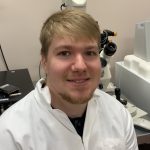
Nathaniel Noblett is a member of the Early Career Scientist Policy and Advocacy Subcommittee and a senior PhD candidate at the University of Ottawa. He is currently researching neurodevelopment in the C. elegans embryo and pursuing his interest in using science policy to make research more equitable, open, and sustainable.
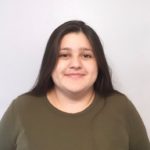
Lucero Rogel is a member of the Early Career Policy and Advocacy Subcommittee and a PhD candidate in the Department of Molecular and Cellular Physiology at Stanford University. She enjoys learning about different scientific fields and hopes to one day use her scientific background to inform policy.
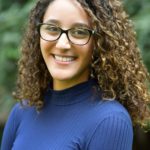
Marah Wahbeh is a member of the Early Career Scientist Policy and Advocacy Subcommittee and a 5th year PhD candidate in Human Genetics at Johns Hopkins. She works in the lab of Dimitri Avramopoulos where she studies schizophrenia genetic risk variants in stem cells.


